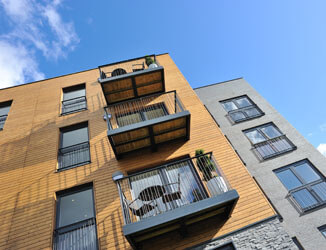A flat owner’s failed appeal to the Central London County Court illustrates the difficulties for flat owners wishing to generate income by letting out their properties through sites such as Airbnb.
In the case of Bermondsey Exchange Freeholders Ltd V Ninos Koumetto (As Trustee In Bankruptcy Of Kevin Geoghehan Conway) (2018) CC (Central London) (Judge Luba QC) 01/05/2018 the landlord and freeholder succeeded at first instance in obtaining an injunction preventing the flat owner from letting the property in this way.
The judge at first instance granted that injunction after rejecting the flat owner’s denial that the property had been let in this way, finding that the property had in fact been widely advertised on Airbnb for short term lettings. It was decided that this did breach the terms of the lease due to:
- the commonly found prohibition against the flat owner parting with or sharing possession of their flat
- a provision that prohibited dealing with the flat in any way other than by selling or letting out the flat as a whole with the landlord’s prior consent; and
- breaching the restricted use which only allowed it to be used as a residential flat in the occupation of one family.
The flat owner failed on appeal to overturn this decision. Unfortunately for other flat owners looking to let in this way, this has clarified the position.
For example, the prohibition against parting with and sharing possession of the premises on one hand and permitting someone to occupy them on the other was found to capture both unauthorised leases and licences meaning that the court doesn’t need to determine whether a particular arrangement is a tenancy or licence so simplifying enforcement. They only needed to find that the whole flat had been occupied by others by arrangements made through the flat owner when he wasn’t occupying it himself.
That said, the court determined that the arrangements were short lettings. This played into the alleged breach of another limb of the restriction against the ways in which the flat could be dealt with namely the requirement to get landlord’s consent before letting the flat as a whole.
The court went on to find that it was clear the restriction against use other than as a residential flat was breached when it was used for short term temporary accommodation for transient visitors paying for such use by way of a commercial hire.
Landlords will be cheered by the upholding of the decision to grant the injunction but should note that one will not automatically be granted as a consequence of the breach. This is a discretionary remedy. In this case the injunction was upheld even though the use of the flat in the way complained of had ceased as:
- firstly the breach had been established;
- secondly relations between the parties had broken down; and
- thirdly it wasn’t possible to resolve the matter by way of an undertaking and finally enforcement might avoid other flat owners being tempted to enter into similar arrangements.
So flat owners need to look carefully at the terms of their lease and take advice as appropriate before entering into such arrangements for fear that they will otherwise face costly court action and the risk of an order being made against them. If they hold a mortgage it may also put them in breach of its terms.



